Publications
Articles, publications, books, tools and multimedia features from the U.S. Institute of Peace provide the latest news, analysis, research findings, practitioner guides and reports, all related to the conflict zones and issues that are at the center of the Institute’s work to prevent and reduce violent conflict.
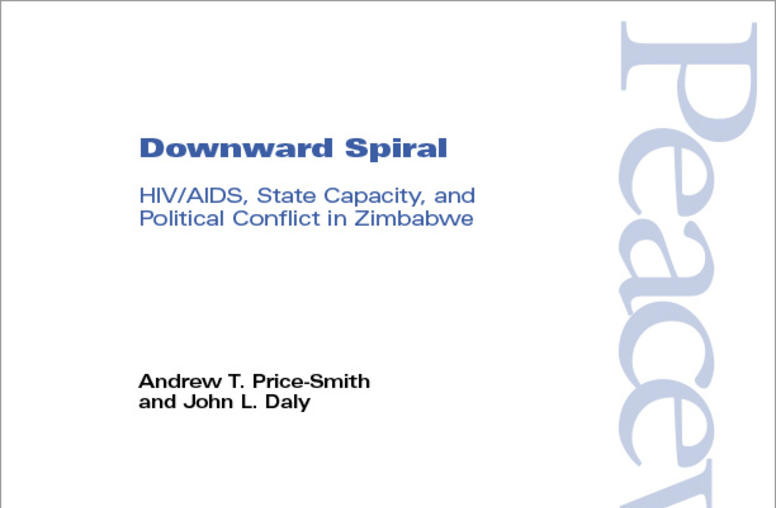
Downward Spiral: HIV/AIDS, State Capacity, and Political Conflict in Zimbabwe
In the post-Cold War era, diverse new threats to long-term global political and economic stability have emerged. Such threats include terrorist activities, the proliferation of nuclear technologies and delivery systems, and biological threats that include both bioweapons and naturally occurring epidemic diseases such as HIV/AIDS.
Serbia Takes a Step in the Right Direction
USIPBriefing analyzes the outcome of the recent presidential elections in Serbia and their likely impact.
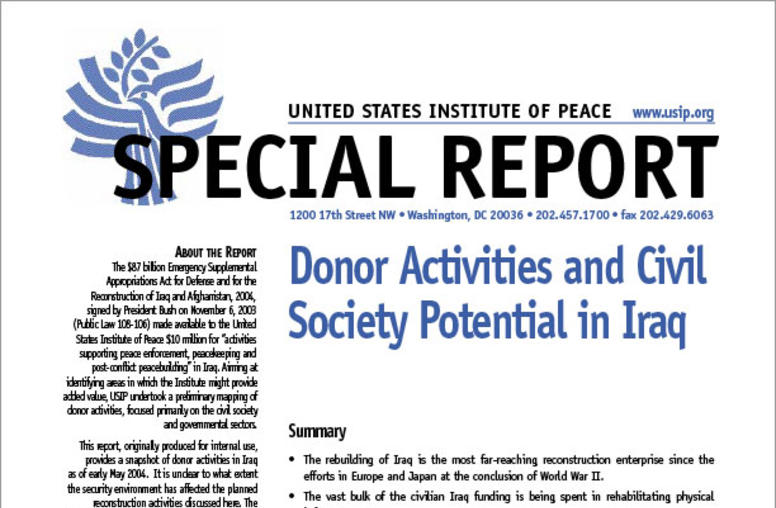
Donor Activities and Civil Society Potential in Iraq
The $87 billion Emergency Supplemental Appropriations Act for Defense and for the Reconstruction of Iraq and Afghanistan, 2004, signed by President Bush on November 6, 2003 (Public Law 108-106) made available to the United States Institute of Peace $10 million for “activities supporting peace enforcement, peacekeeping and post-conflict peacebuilding” in Iraq. Aiming at identifying areas in which the Institute might provide added value, the Institute undertook a preliminary mapping of donor ac...
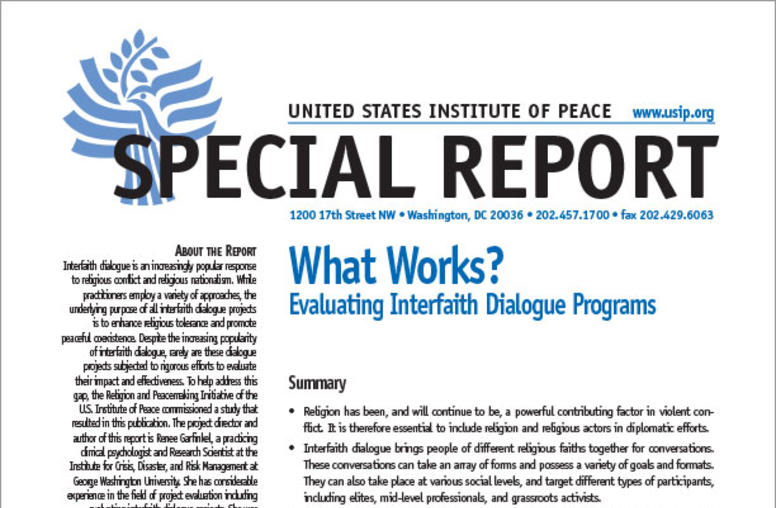
What Works? Evaluating Interfaith Dialogue Programs
Summary Religion has been, and will continue to be, a powerful contributing factor in violent conflict. It is therefore essential to include religion and religious actors in diplomatic efforts.
Donor Activities and Civil Society Potential in Iraq (Arabic Edition)
Summary The rebuilding of Iraq is the most far-reaching reconstruction enterprise since the efforts in Europe and Japan at the conclusion of World War II. The vast bulk of the civilian Iraq funding is being spent in rehabilitating physical infrastructure. About $730 million is now programmed for democracy, civil society, human rights, and refugees, including the Institute’s conflict management activities.
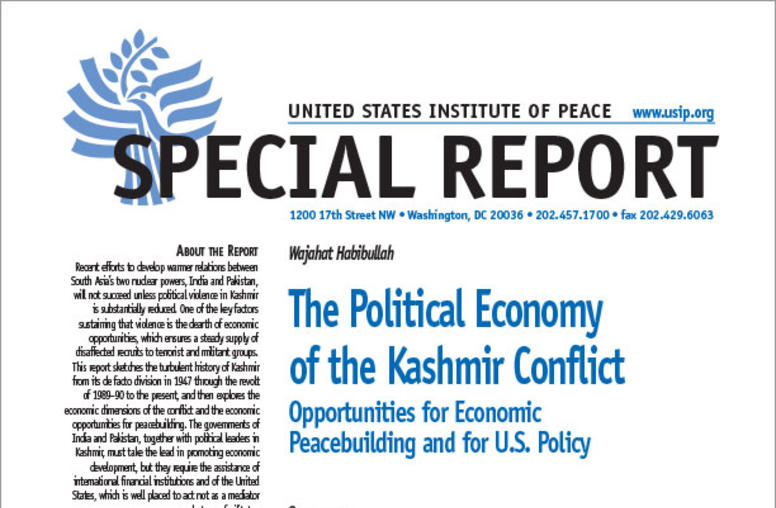
The Political Economy of the Kashmir Conflict: Opportunities for Economic Peacebuilding and for U.S. Policy
Summary The governments of India and Pakistan have recently indicated a desire to develop warmer relations and to settle the issues that divide them by peaceful means. This endeavor will not succeed, however, unless political violence in Kashmir is substantially reduced.
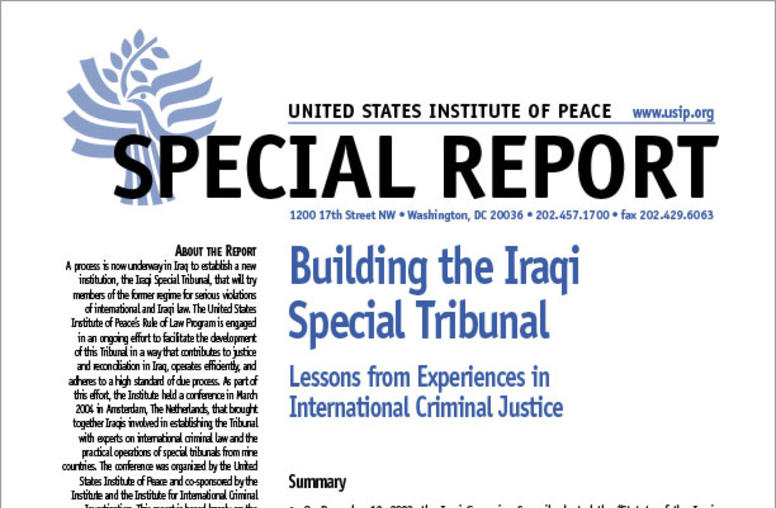
Building the Iraqi Special Tribunal: Lessons from Experiences in International Criminal Justice
A process is now underway in Iraq to establish a new institution, the Iraqi Special Tribunal, that will try members of the former regime for serious violations of international and Iraqi law. The United States Institute of Peace’s Rule of Law Program is engaged in an ongoing effort to facilitate the development of this Tribunal in a way that contributes to justice and reconciliation in Iraq, operates efficiently, and adheres to a high standard of due process.
Kosovo and Serbia: Still in Need of a Plan
New USIPeace Briefing addresses the root causes of the violence and possible solutions.
Building the Iraqi Special Tribunal: Lessons from Experiences in International Criminal Justice (Arabic Edition)
Summary On December 10, 2003, the Iraqi Governing Council adopted the "Statute of the Iraqi Special Tribunal," providing the legal foundation and laying out the jurisdiction and basic structure for the Tribunal that will be responsible for prosecuting acts of genocide, crimes against humanity, and war crimes committed in Iraq between 1968 and 2003.
Truth Commission: Paraguay
Truth Commission: Truth and Justice Commission Duration: 2004 - 2008 Charter: Ley No. 2225 Commissioners: 9 Report: Public report